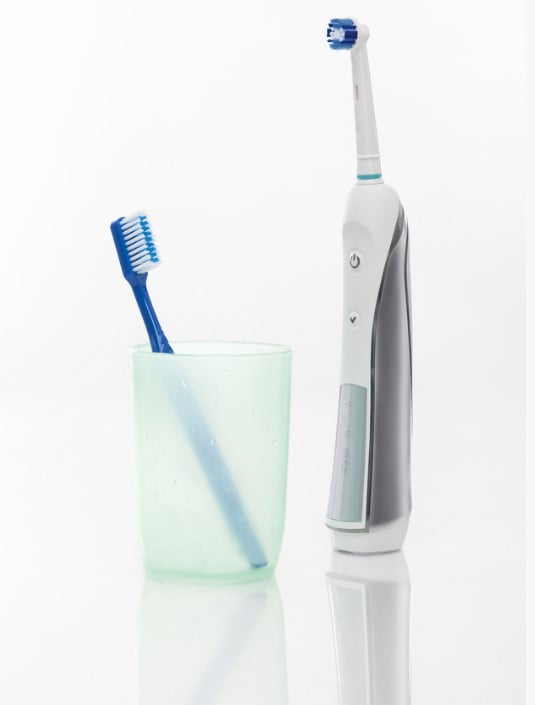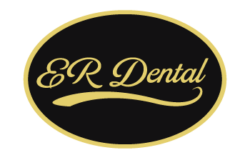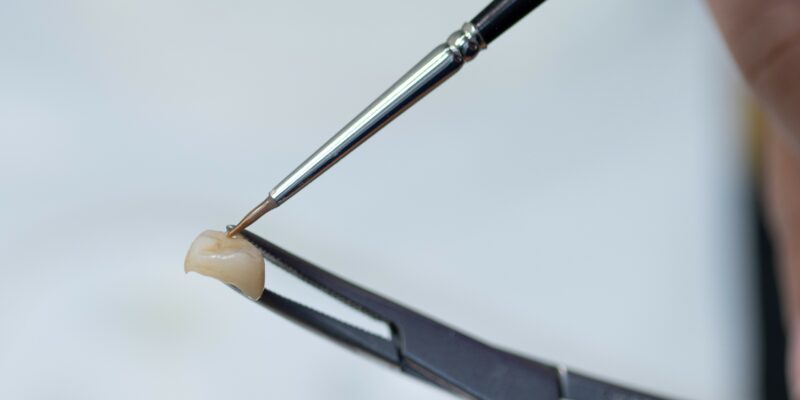
New research* suggests that people who brush their teeth with an electric toothbrush are less likely to develop gum disease and ultimately lose teeth. The reason why electric brushing is more effective does not lie in the tool though. Rather, it is because many people don’t apply the right technique when using a manual toothbrush.
The research is based on data of 2,800 people whose oral health had been monitored over a period of 11 years. It was found that people who used an electric toothbrush developed fewer gum pockets and had a better state of the structures surrounding and holding teeth in place.
In a healthy mouth each tooth is firmly attached and held in place by the gum tissue. The root is anchored in the jaw bone. If gum disease is present, the gum tissue becomes inflamed. Bacteria that feed on biofilm and plaque grow inside gum pockets that deepen over time, thus compromising the tooth’s attachment. Once the inflammation reaches the jaw bone, it weakens the very structure in which the tooth is anchored. Gradually, the tooth loosens even more until it eventually falls out if the condition is not treated to stop and reverse the process.
The researchers’ key findings are: in principle, manual and electric toothbrushes are equally effective at preventing gum disease. However, electric toothbrushes do a better job at brushing properly, automatically. Conversely, this means that if you use the right manual technique, there is no need to switch to an electric brush.
Too much of a good thing
However, if you don’t do it right, the damage caused by improper brushing with a manual brush is bigger than with an electric brush. Unfortunately, many people who use a manual toothbrush don’t brush long enough, use a brush with hard or medium-hard bristles, press too firmly, or brush their teeth and gums too long and hard, which eventually leads to toothbrush abrasion, i.e. causes the gums to wear away and expose the sensitive tooth necks.
At ER Dental we see generally better oral health in patients who use an electric brush. But if you want to use a manual brush, we are more than happy to show you how to brush correctly. Just ask us! We have highly qualified dental hygienists ready to answer all your oral hygiene related questions.
* Source: Journal of Clinical Periodontology, Long-term impact of powered toothbrush on oral health: 11-year cohort study, published 22 May 2019.



